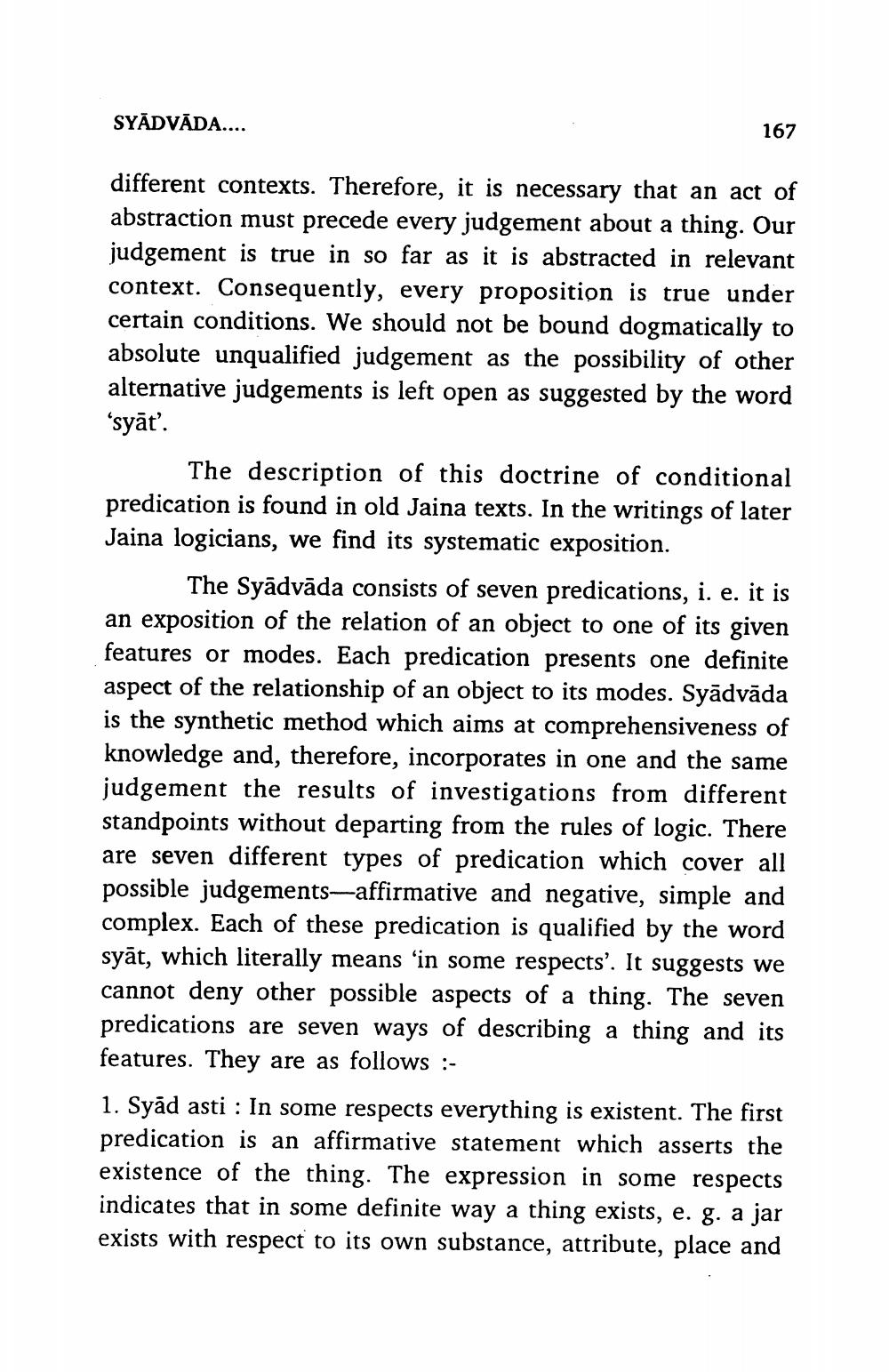________________
SYĀDVĂDA....
167
different contexts. Therefore, it is necessary that an act of abstraction must precede every judgement about a thing. Our judgement is true in so far as it is abstracted in relevant context. Consequently, every proposition is true under certain conditions. We should not be bound dogmatically to absolute unqualified judgement as the possibility of other alternative judgements is left open as suggested by the word ‘syāť.
The description of this doctrine of conditional predication is found in old Jaina texts. In the writings of later Jaina logicians, we find its systematic exposition.
The Syādvāda consists of seven predications, i. e. it is an exposition of the relation of an object to one of its given features or modes. Each predication presents one definite aspect of the relationship of an object to its modes. Syādvāda is the synthetic method which aims at comprehensiveness of knowledge and, therefore, incorporates in one and the same judgement the results of investigations from different standpoints without departing from the rules of logic. There are seven different types of predication which cover all possible judgements—affirmative and negative, simple and complex. Each of these predication is qualified by the word syāt, which literally means 'in some respects'. It suggests we cannot deny other possible aspects of a thing. The seven predications are seven ways of describing a thing and its features. They are as follows :1. Syād asti : In some respects everything is existent. The first predication is an affirmative statement which asserts the existence of the thing. The expression in some respects indicates that in some definite way a thing exists, e. g. a jar exists with respect to its own substance, attribute, place and




